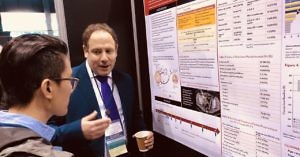Today’s post focuses on another question from a reader, who asked: “How will we decide which therapies to give patients with metastatic melanoma once the new immunotherapies are available?”
This is not an easy question to answer, but first let’s remember that as little as five years ago there were only treatments such as DTIC (dacarbazine), temozolamide, interferon, chemotherapy and not much else as choices for people with advanced melanoma. Survival rates were generally poor, yet despite the low barrier to entry, many agents failed miserably to beat them. The disease was therefore widely considered to be a graveyard for Pharma R&D.
Fast forward to 2014. We now have several targeted therapies and combinations approved including BRAFV600E (vemurafenib and dabrafenib) and MEK inhibitors (trametinib), as well as a number of others that may soon be on the way in the near term such as cobimetinib in combination with vemurafenib. Along similar lines, GSK recently announced that the combination of dabrafenib plus trametinib was superior to vemurafenib alone in terms of overall survival. Hopefully, we will see the full data for both combinations at a medical meeting such as ESMO or EADO in the Fall.
Immunotherapies such as ipilimumab (Yervoy) have also been shown to improve patient outcomes. In addition, others are also in the queue including anti-PD–1 antibodies, which are likely to be reviewed soon by the Health Authorities (e.g. pembrolizumab and nivolumab). Indeed, Japan already approved nivolumab (Opdivo) in advanced melanoma on July 4th, making it the first anti-PD–1 checkpoint inhibitor to be available globally. Meanwhile, in the US Merck had a jump start with their rolling NDA for pembrolizumab already started (the PDUFA is Oct 28th, 2014). Their data at ASCO included probably one of the largest trials I’ve seen in advanced melanoma with over 400 patients included. BMS are not far behind with nivolumab, however, and are expecting to begin their filing in the 3Q this year following the frontline trial (CHECKMATE 037) in BRAF wild type (wt) metastatic melanoma versus dacarbazine successfully meeting its primary endpoint earlier than expected.
You can read about the clinical results relating to the three key melanoma trials reported at ASCO by Ribas et al., Hodi et al., and Sznol et al., in our earlier review but today, I wanted to focus on a broader, more strategic perspective, now that several events post meeting are shaking out more clearly.
A couple of years ago (was it really that long?!), many of us were quite disappointed to see the combination of vemurafenib plus ipilimumab scuttled due to unexpected liver toxicity, although the good news from ASCO is that a dual immunotherapy combination (ipilimumab plus nivolumab) appears not to have met the same fate.
The landscape for metastatic melanoma is therefore rapidly changing, but where is this field likely to go and what can we expect to see?
To learn more about our insights, you can log-in.
This content is restricted to subscribers





